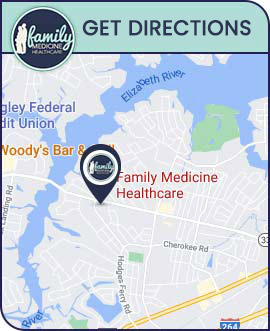Urinary Tract Infections Treatment Clinic in Chesapeake, VA
Even though UTIs (urinary tract infections) are typically minor, they should still be treated because treatment can prevent significant complications. Come to Family Medicine Healthcare, Dr. Samir Abdelshaheed, MD offers convenient, effective, and timely evaluation and management of UTI. For more information, please contact us today or simply book an appointment. We are conveniently located at 3925 Portsmouth Boulevard, Chesapeake, VA 23321.


Table of Contents:
What is a urinary tract infection (UTI)?
How do you know if you have a urinary tract infection?
What are the main causes of a UTI?
How are urinary tract infections (UTIs) diagnosed?
Urinary tract infections can cause intense pain and discomfort, making routine activities, such as using the washroom, significantly more difficult than usual. At Family Medicine Healthcare, our doctors and medical professionals have plenty of experience and expertise in successfully treating all types of urinary tract infections.
A urinary tract infection is an infection that occurs due to bacteria, fungi, or viruses entering any part of your urinary tract, which involves your bladder, kidneys, ureters, and urethra. The majority of urinary tract infections occur in the lower part of the urinary tract, consisting of the bladder and urethra. At the same time, it is very rare for a urinary tract infection to occur in the ureters. Urinary tract infections are classified according to the particular part of the urinary tract in which the infection occurs. With that in mind, the types of urinary tract infections are as follows:
• Acute pyelonephritis, which is a UTI in the kidneys
• Cystitis, which is a UTI in the bladder
• Urethritis, which is a UTI in the urethra
While a definitive diagnosis of a urinary tract infection typically requires some form of diagnostic testing, there are various symptoms that indicate a likely UTI, although the symptoms vary slightly according to the type of UTI that the individual has. With that in mind, the symptoms of each kind of UTI are as follows:
• Acute pyelonephritis: symptoms include back pain, flank or side pain, high fever, chills and shaking, nausea, and vomiting
• Cystitis: symptoms include blood in the urine, frequent and painful urination, lower abdominal pain or discomfort, and pressure in the pelvic region
• Urethritis: symptoms include burning and discharge with urination
Other symptoms of a UTI could include cloudy and strong-smelling urine or passing frequent but small amounts of urine. With that being said, some urinary tract infections do not cause any signs and symptoms, in which case treatment is not usually necessary.
Bacteria cause most urinary tract infections, specifically, the Escherichia coli (E. coli) bacterium, although chlamydia and mycoplasma bacteria are known to cause urinary tract infections in the urethra. In rarer cases, urinary tract infections are caused by fungi or viruses.
In terms of factors that can increase the chances of someone experiencing a urinary tract infection, the following lifestyle choices, medical conditions, and life stages are commonly linked to an increased risk of urinary tract infections:
• Blocked urination flow
• Bowel incontinence
• Certain types of contraception, such as cervical caps, diaphragms, or spermicides
• Compromised or suppressed immune system
• Diabetes
• Difficulty with completely emptying the bladder
• Heavy antibiotic use
• Improper use of tampons
• Kidney stones
• Lack of personal hygiene
• Menopause
• Pregnancy
• Sexual activity, especially when multiple or new partners are involved
• Use of a urinary catheter
In order to diagnose a urinary tract infection, a doctor will evaluate your symptoms before determining what route of testing should be pursued. Some common ways of testing and diagnosing urinary tract infections include the following:
• Cystoscopy, using a long, thin tube known as a cystoscope to look inside the bladder and urethra
• Medical imaging, such as a computerized tomography (CT) scan, medical resonance imaging (MRI), or ultrasound imaging
• Urinalysis, sometimes followed by a urine culture
If you are dealing with a urinary tract infection, our family medicine doctors would be pleased to provide you with effective treatment at Family Medicine Healthcare in Chesapeake, Virginia! For an appointment, please feel free to schedule one through our website, call us or visit our clinic at 3925 Portsmouth Blvd in Chesapeake, VA, for a walk-in appointment. We serve patients from Chesapeake VA, Portsmouth VA, Norfolk VA, Suffolk VA, Virginia Beach VA, and Hampton VA.








